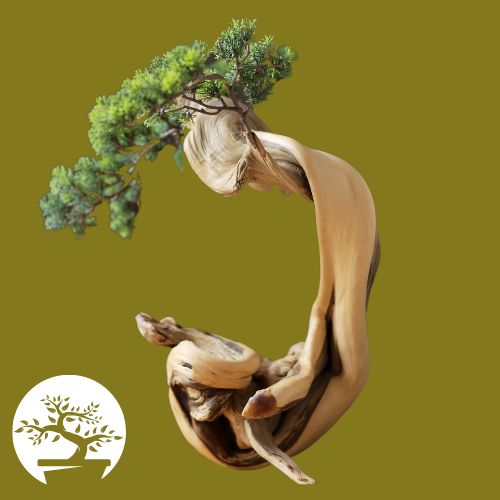If you’ve spent any time looking into the world of bonsai trees, then you may have found yourself wondering if it’s an ethical practice, even with the proper care. After all, bonsai growing involves purposefully stunting, pruning, and manipulating the growth of a plant. Is bonsai cruel?
Today, we’re going to explore some of the main ethical questions aimed at the bonsai community.
We hope to put your mind at ease by answering these questions and assure you that growing bonsai is a healthy and harmless art form.
What Is A Cruel Gardening Practice?
Most people consider gardening a hobby that is good for the environment and completely ethical. This usually is the case, but some gardening practices can be considered cruel or unethical.
For example, putting lots of weedkiller down on your lawn might keep it looking luscious, but it can also harm animals that pass through your garden. In general, an unethical gardening practice actively harms animals or the environment.
This applies to plants too! Even though they can’t experience pain, plants do a lot of work to maintain the balance of the ecosystem. For this reason, destroying plants, over-pruning, or unnaturally manipulating them can sometimes be considered cruel or unethical. This brings us to the art of bonsai trees.
The Ethical Questions Around Bonsai Cultivation
At first, it’s easy to see why people have ethical questions about bonsai cultivation. It’s because a bonsai tree does not experience natural growth and is forced into the aesthetic vision of its owner. But does this mean that the practice is cruel? Let’s take a closer look at some of the important ethical questions to establish the answer:
Can bonsai trees feel pain?
Like all plants, bonsai trees cannot feel pain. This is because they don’t have a central nervous system or a brain, so they naturally cannot process pain. Humans and animals have evolved to have pain receptors to protect them from harm, but this didn’t happen to plants.
Modern studies suggest that plants can detect tremors and changes in the earth, but they don’t feel this in the same way as animals. A bonsai tree does not feel pain, so you can’t be cruel to it in this way, and pruning won’t hurt it.
Is stunting growth harmful?
Stunted growth is the crucial technique behind growing a bonsai. The whole point is to limit the plant’s growth space and nutrient intake to keep it at a miniature size. But since a plant cannot feel these things happening, it’s not being placed in harm’s way.
A plant grows as much as its current conditions allow. Environmentally, we need large trees in the world to capture carbon dioxide and provide us with oxygen. If all the trees in the world were being stunted, then that would be a big problem. But, of course, that’s not what’s happening at all!
Are bonsai wires bad for the environment?
Bonsai growers use wires to shape and mold their plants. These wires are reusable and have plenty of other uses around the garden. Of course, purchasing any non-natural product will have some environmental impact, but since you only have to buy it once, any effect will be minimal.
As long as you’re reusing your wires and not throwing them away each time, it’s hard to say that you’re damaging the environment.
Are the trees bad for the environment?
The final question you might ask about a bonsai plant is whether the act of growing it is inherently bad for the environment. Like most indoor plants, all a bonsai tree needs to grow is a regular supply of water. Bonsai trees don’t pollute the atmosphere or stop other plants from growing correctly since their roots are contained in a small pot.
Moreover, if you keep your bonsai tree outside, it can become a habitat for insects. This is especially true if your bonsai collection contains flowering plants.
Can Bonsai Trees Exist In Nature?
A bonsai tree is, by definition, not natural. However, there are many instances of plants having their growth stunted in nature, and the results are often very similar to bonsai trees.
This usually occurs when a tree seedling falls into a crack between rocks. These conditions make it very difficult for the tree’s root system to spread, and the confined space stops it from ever growing fully. This is the exact principle used to grow bonsai trees.
Are Bonsai Trees Tortured?
Bonsai trees are indeed prevented from growing naturally, but this doesn’t mean they’re being tortured. Plants cannot feel pain, and a bonsai taking on a miniature shape does not mean it has suffered harm.
Can I Grow Bonsai Trees Outside?
Yes, you can grow bonsai trees outside. Just be sure to keep your tree in a small pot rather than planting it in a flower bed. If you do, then it might start growing to the size of a regular tree since its roots will be able to spread freely in the soil!
Is Growing Bonsai Amongst Other Trees Okay?
Yes, placing a bonsai tree amongst other plants isn’t going to impact their healthy growth. However, with that said, taller trees can block sunlight from reaching small pots, so consider that when positioning your plants.
How Can I Grow My Bonsai Tree In The Most Ethical Way?
Growing a bonsai tree is just as ethical as any other potted plant. If you’re not throwing away materials, being overly aggressive when you prune it, or wasting water, you won’t be harming the environment.
Final Thoughts: Is Bonsai Cruel?
To summarise, it’s clear that growing a bonsai tree is not a cruel or unethical practice. Not only does the process not cause the tree pain, and it doesn’t harm the environment.
There’s no reason to be concerned about your bonsai art being unethical!
